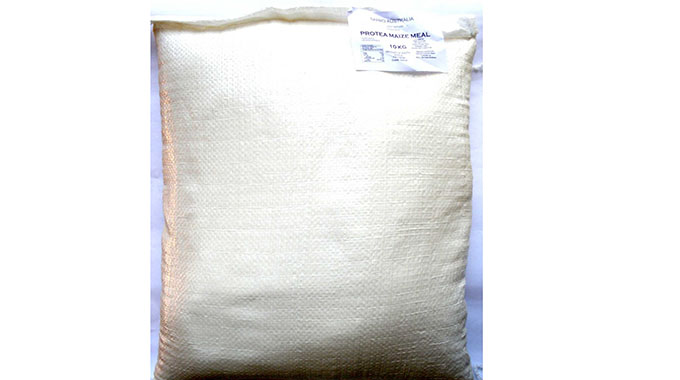Packaging cost could push up mealie meal price

Enacy Mapakame
The price of mealie meal could increase if tomorrow’s deliberations between millers and packaging manufacturers fail to reach a consensus after the latter increased cost of packaging by over 500 percent.
Manufacturers of packaging for mealie meal and bread more than doubled their prices, a situation that is likely to see the prices of mealie meal going up from the current average price of $5,50 for 10kg of roller meal.
For instance, the price of packaging for a loaf of bread rose 633 percent to 22 cents from 3 cents a plastic.
The price for a 5kg mealie meal packaging rose 85 percent to 37 cents while that for a 10kg pocket increased 62 percent to 37 cents.
Packaging for 20kg pocket now costs 89 cents, representing a 122 percent increase while a 50kg pocket will now cost 89 cents which is 114 percent above the previous price.
Plypropylene which used to cost $1,34 in bond notes or RTGS is now pegged at US$2,76 while laminating plastic is now $6 per kilogram from $2 for 5kg, representing a 1 400 percent increase.
Despite the foreign currency shortages currently obtaining in the country, some of the packaging manufacturers now demand payment in the scarce United States dollar, as opposed to real time gross settlement (RTGS).
A crisis meeting between the millers, local and regional packaging producers is scheduled for tomorrow (Wednesday) where deliberations will centre on the unsustainable price increase, which is expected to affect the entire value chain.
Grain Millers Association of Zimbabwe (GMAZ) general manager Lynette Veremu said there was an urgent need for a downward review of the new prices for packaging.
Failure to do so, she said, could trigger an increase in the price of mealie meal. Recently, the price of bread was reviewed upwards to $1,40 from $1,10.
“Not only have they increased the prices by in some instances 700 percent, but they are also demanding their payments in foreign currency and this is the reason why we have arranged this meeting with them so that we deliberate on the implications to consumers.
“We have also invited to the meeting South African companies which are also in the packaging material manufacturing business so that we share and exchange views in an effort to find a workable solution that does not affect the already burdened consumer whom all the costs are extended to,” said Miss Veremu.
At the same meeting set for tomorrow, industry players are also expected to review the impact of the suspension of the Statutory Instrument 122 of 2017 on the milling industry.
Last month, Government temporarily lifted the statutory instrument to allow companies and individuals with free funds to import certain basic commodities and revert shortages.
This came after the country had experienced severe shortages of basic goods such as sugar, cooking oil and flour following supply gaps, panic buying as well as hoarding.









Comments